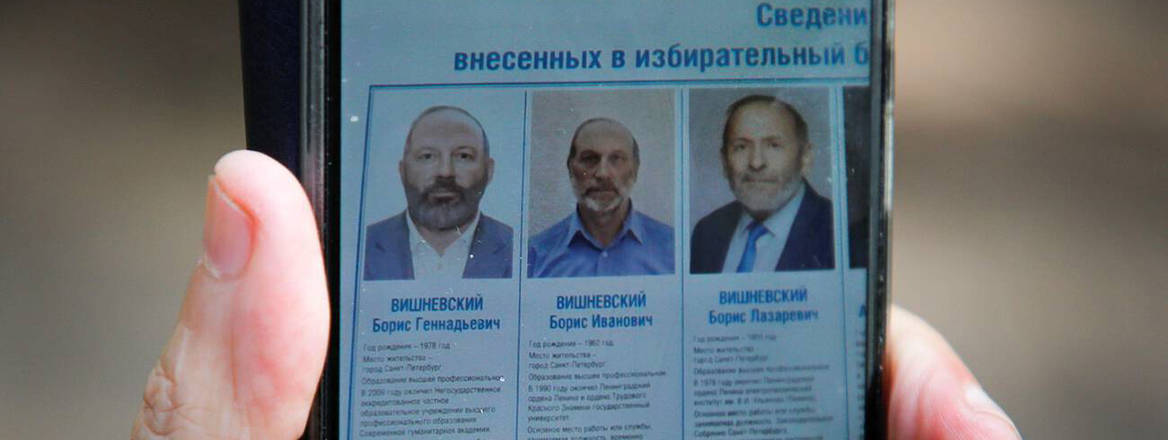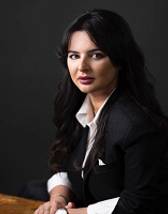In what may serve as a rehearsal for Russia’s next presidential election, the Kremlin used a number of manipulative tactics to ensure that the ruling party retained its majority in the recent State Duma elections.
Despite declining approval ratings for the ruling United Russia party, an economic downturn, the coronavirus pandemic and regime fatigue, the pro-Kremlin party still managed to score an easy victory in the 2021 State Duma (parliament) elections. While the outcome was hardly a surprise, the use of repressive measures and a myriad of electoral manipulation techniques may serve as a rehearsal for the 2024 presidential election, where Russian President Vladimir Putin is highly likely to bid for another presidential term.
During Putin’s 21 years in power, Russians have grown accustomed to predictable elections. Yet, the latest State Duma elections were possibly some of the country’s most uncompetitive and least free and fair elections – even by Russian standards.
Prior to the elections, the approval rating of the ruling party stood at an eight-year low of 27%. Yet, United Russia still managed to win 49.8% of votes and 324 of the State Duma’s 450 seats, losing 19 seats compared to the 2016 State Duma elections and thereby still retaining the ‘super majority’ that will allow the pro-Putin party to amend the constitution. This year, the Kremlin put much more effort and resources into making sure that the elections would not reveal its deep-seated vulnerabilities. Compared to the 2016 elections, when the ‘Crimea effect’ still provided a boost to Putin’s personal ratings as well as support for United Russia’s agenda, Russia is currently facing grave challenges that have been exacerbated by the pandemic. Thus, in preparation for the 2024 presidential elections, the ruling party needed to meet its goal and retain a solid advantage at all costs in order to prove that it still has the backing of the majority of the population. Meanwhile, the constitutional majority will allow Putin to further rely on the Duma to push through his unlawful initiatives.
Suppression of the Opposition
Despite the authoritarian nature of Russian governance, elections have always mattered, representing a tool to legitimise Putin’s regime and maintain a facade of democracy. The strategy was simple: to allow a handful of the least exciting opposition candidates and satellite parties – serving to consolidate Putin’s regime – to run in the elections. Yet, due to the unexpected rise of Alexei Navalny as a leading opposition figure, the Kremlin has opted for large-scale repression. Starting with Navalny, who is currently imprisoned, the regime then went after individuals who were even vaguely associated with Navalny and his team. Other opposition candidates and Putin’s critics had a choice between going to jail and fleeing the country. The Russian opposition politician Dimitry Gudkov, who was planning to run in the September elections, chose the latter.
In preparation for the September elections, the regime started to target any organisation or individual who voiced criticism against Putin – even on social media. The impressive list of ‘foreign agents’ already includes almost all leading independent voices in Russia, such as TV Rain, IStories, VTimes, Meduza, The Insider, Voice of America, and Radio Free Europe/Radio Liberty.
It is hardly a coincidence that the largest crackdown on media and NGOs so far followed Navalny’s return to Moscow and the reawakening of civil society, as seen in a number of pro-Navalny mass protests earlier this year. Yet, imprisoning Navalny was not enough for the regime to feel safe. In June 2021, Navalny’s Anti-Corruption Foundation and its regional networks were labelled as ‘extremist’ and banned by a Moscow court ruling. The ‘extremist’ label prevented Navalny’s supporters and affiliates from running for office.
Yet, even those who were still able to run were faced with surreal challenges. The most notable case was Boris Vishnevsky and his two doubles. Voters in St Petersburg’s election ballot had to make a choice between three ‘Boris Vishnevskys’, of which two were spoiler candidates aiming to confuse voters. The original Boris Vishnevsky is a Kremlin critic from the liberal Yabloko party. According to Novaya Gazeta, the two ‘spoiler candidates’ changed their names before running in the elections. To make things even more confusing, the three men look almost identical, which is hardly a coincidence.
Outmanoeuvring ‘Smart Voting’
The use of spoiler candidates has long proved to be an effective strategy for the Kremlin. Yet this time, draconian measures were taken in order to ensure that the ‘smart voting’ campaign failed. The tactical voting scheme proposed by Alexei Navalny consisted of urging opposition-minded voters to vote for any candidates running against the ruling party: these could be communist, liberal or nationalist. According to this scheme, ideology and political agenda did not matter, as long as they stood a chance of unseating the United Russia candidates. The strategy was first tested in 2019 during the Moscow City Duma elections and proved to be effective, with the opposition winning nearly half of the seats.
It is hardly a coincidence that the largest crackdown on media and NGOs so far followed Navalny’s return to Moscow and the reawakening of civil society
With Navalny serving his prison term, ‘smart voting’ was the only way to send a message to the Kremlin. To achieve this, Navalny’s team designed a website and an app where voters could enter their address and find out the name of the candidate with the highest chances of winning against the United Russia candidate in a specific district. Concerned by the growing popularity of the scheme, the Kremlin decided to crush it. Unsurprisingly, Russian media regulator Roskommnadzor easily blocked access to the website and later to the Google Docs platform in order to prevent the distribution of information regarding ‘smart voting’ candidates. The Kremlin did not shy away from taking on this issue at an international level, pushing the Google and Apple app stores to remove the Navalny app.
This crackdown on technology indicates the regime’s long-term insecurity over the smart voting strategy. The Kremlin’s implementation of electronic voting in three-day parliamentary elections amid the pandemic gave it the opportunity to easily manipulate the election results and outmanoeuvre any unexpected boost to opposition candidates that the smart voting scheme could provide. During the electoral race in Moscow, a number of opposition candidates were set to win until the results of the online voting were announced after a long delay. Given the lack of control over electronic voting data, the Kremlin is highly likely to use the same tactic for fraud and manipulation in 2024.
Unexpected ‘Winner’
Although the Kremlin has neutralised the ‘non-systemic’ opposition, the Communist Party (KPRF) made significant gains in the State Duma elections, winning nearly 19% of the vote and coming in second with 57 seats – an increase from the 2016 elections, when they won 42 seats. The communists clearly benefited from the ‘smart voting’ scheme, as Navalny’s team urged voters in many districts to back communist candidates. Yet, the growing support for the Communist Party also indicates the lack of choice in the Russian political realm for those who are unwilling to support the ruling party, but cannot cast their votes for opposition candidates due to their disqualification. The communists have already filed a number of lawsuits claiming that the election results have been manipulated against them due to online voting. With its growing appeal, the Kremlin is likely to put increased pressure on the KPRF, which has shown some potential to transform itself from a ‘systemic’ to a ‘non-systemic’ opposition. The emergence of a younger cohort of communists (some of whom allegedly have connections with Team Navalny) may further increase the push for a redefinition of the party’s traditional role.
What’s Next for the Russian Opposition?
By restricting Navalny and his team, as well as a variety of NGOs, opposition groups and media outlets, Putin’s regime is playing for time. No matter how unpopular United Russia is, the regime is determined to retain its grip on power through the use of repression, deception and fraud. Within days after the elections, the Russian Investigative Committee launched a new criminal case against Navalny and his allies over the creation of an ‘extremist network’, once again indicating that repression will continue and that Navalny is unlikely to regain his freedom. In the meantime, while the ‘non-systemic’ opposition is being neutralised, the KPRF remains the only ‘systemic’ opposition that can potentially challenge the regime. Despite organising street protests in the aftermath of the elections, it remains to be seen whether its leaders are willing to venture outside of their comfort zone.
As the dust settles from this year’s elections, the Kremlin’s desperate measures provide a preview of just how ugly the 2024 presidential election could be.
The views expressed in this Commentary are the author’s, and do not represent those of RUSI or any other institution.
Have an idea for a Commentary you’d like to write for us? Send a short pitch to commentaries@rusi.org and we’ll get back to you if it fits into our research interests. Full guidelines for contributors can be found here.
WRITTEN BY
Natia Seskuria
RUSI Associate Fellow, International Security


